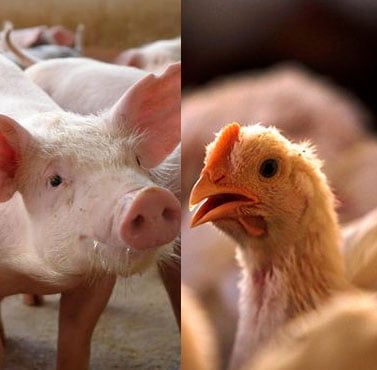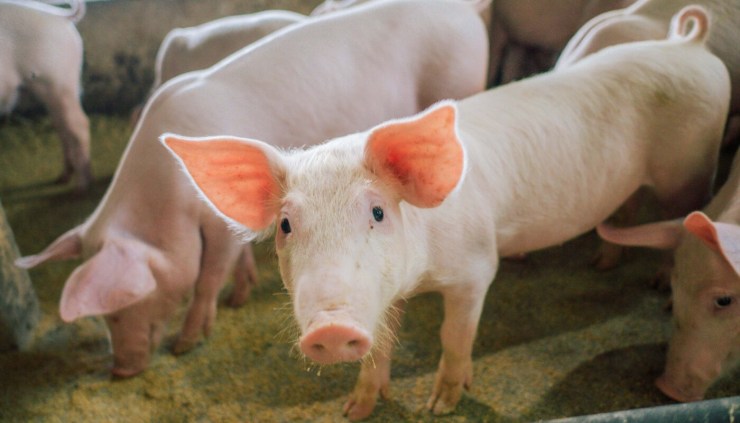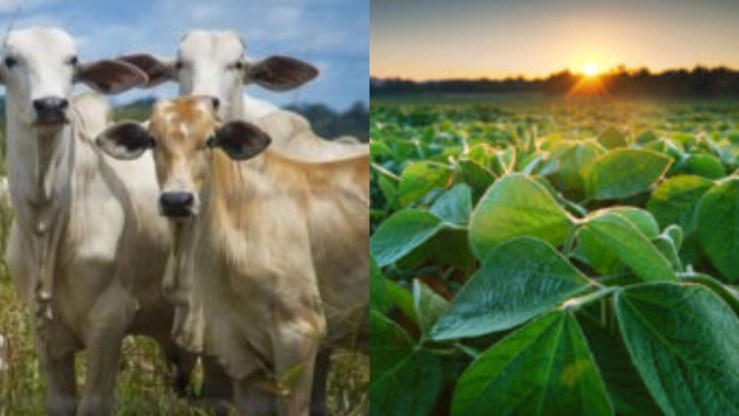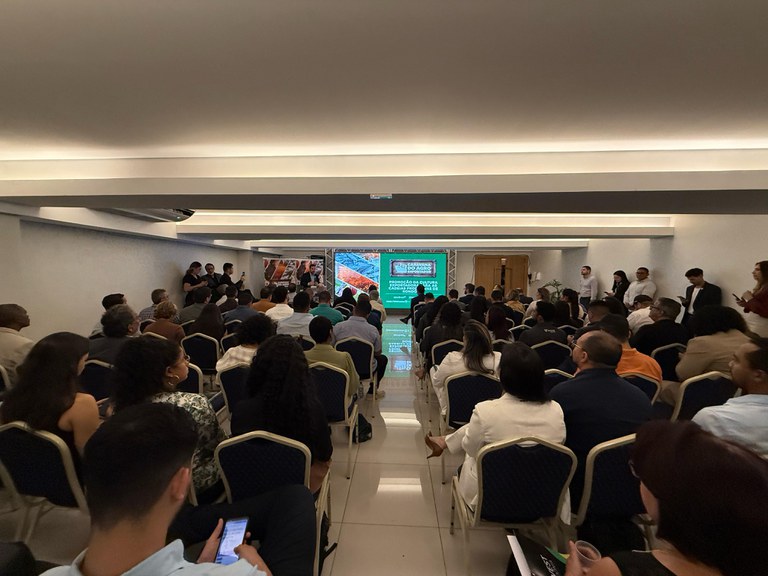The 4th edition of the Livestock Route successfully concluded technical visits to four leading rural properties, presenting technological innovations aimed at sustainable cattle production in Tocantins to producers and technicians in the sector. The closing ceremony took place at Fazenda Santa Fé – Estância RD, in the municipality of Santa Fé do Araguaia, in the northern region of the state, this Thursday, the 26th.
The expedition is an initiative of the Government of Tocantins, through the State Secretariat of Agriculture and Livestock (Seagro), with the support of several partners in the agricultural sector. The objective is to promote integration among producers, present and encourage the use of sustainable technologies, and encourage the exchange of experiences and strategies to improve the productivity of Tocantins livestock.
Technology applied at Santa Fé Farm

UFNT academics, Edésio Almeida and Almeirinda Santos, present experimental research with forage plants
Sustainable livestock farming in Tocantins has advanced with the adoption of innovative production systems. One example is Fazenda Santa Fé, which invested in high-tech confinement through the Compost Barn system, originally used in dairy farming but successfully adapted for beef cattle production.
Compost Barn
The Compost Barn is a system in which animals are kept in a shed covered with a thick bed of organic material, such as sawdust, rock dust, reactive phosphate, gypsum and biological compost. The animal waste is incorporated into the bed, generating a natural composting process that results in high-quality fertilizer.
In addition, the system provides well-being for the animals, allowing free movement, access to water, food and a resting area. At Fazenda Santa Fé, the environment also features classical music, which contributes to the comfort and reduction of stress for the animals.
Measuring 120 meters long by 28 meters wide, the shed has the capacity to house up to 400 cattle, and is considered a true hotel for cattle, entirely based on sustainable practices.
According to owner Roque Delorenzo Ribeiro, the system has proven to be highly efficient. “It is a modern structure that promotes animal welfare and provides excellent production results. We produce around 6 tons of compost per year and have an average profit yield of 22%,” he said.
Experimental Unit

Director of Seagro, José Américo Vasconcelos, highlights the importance of the Route for the development of livestock farming
Fazenda Santa Fé is also a partner of the Federal University of Northern Tocantins (UFNT) in the implementation of an Experimental Forage Unit, focusing on the Miyagi and Humidícula grass varieties. The research, which began in September 2024, is being conducted by master's students Edésio Almeida and Almeirinda Santos, from the Animal Science course. “We are confident in the results of the research. The compost used in the experiment comes from Compost Barn, which should bring significant gains in forage quality and, consequently, in animal performance”, explained academic Almeirinda Santos.
Closing
At the end of the Livestock Route, Seagro’s Agriculture, Agribusiness and Livestock Director, José Américo Vasconcelos, highlighted the progress made during the event. “We have concluded yet another edition of the Livestock Route with great success. Over the course of four days, we were able to experience valuable experiences, learn about cutting-edge technologies and strengthen the integration between producers, technicians and institutions. The initiative reaffirms the Government’s commitment to promoting the sustainable development of livestock farming in Tocantins,” he concluded.





